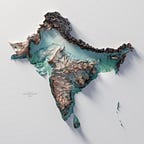Nongshaba Laihui Puya— Legendary account of the Great Dragon Lion from the ancient Meitei mythology (old Manipuri mythology)
Nongshaba Laihui (Nongsaba Laihui) Puya is a Meitei text written about the magnificent Nongshaba (Kanglasha), the second son of the Universal Lord. He’s also known as Tholbu Chinglen Nongdai Ningthou and is not much referred to as having assigned or taken a great role in the creation of the universe or stood in the way of his elder brother Asheeba while executing the gigantic task.
Nor like the two brothers does he occupy so high a place in the Meitei pantheon, though successive kings invariably dedicated a temple to Him in the Royal premises. Nongshaba like his younger brother Pakhangba has no human descendants nor does He manifests in human form like his elder brother Sanamahi as given in the manuscript Pakhangba Laihui and Sanamahi Laihui.
At the outset, the writer is all effusion of His resplendent glories:
“Thou, Lord of Gods and Goddesses together with the exalted Awang Phatlou Laimakhomba (Sanamahi), like two strands of the thread entwined, exercise Thine sway over the earth and in doing so effulgent rays radiate from Thee. Thus with the reflected light, all other divine beings take on a dazzling look and are then made to stand guard at the four corners, eight directions and sixteen sub-directions. All the souls of the living creatures emanate from Thee and again like beads of gold strung together Thou art in complete harmony with Nongda Lairen Pakhangba who can be a man in the night and a God during the day. There Thou takest Thine name as Chinglen Nongdai Ningthou and with Thine consort Thongnang Leicha Khombi, Thou becomest like innumerable Suns among the myriad stars… On both of Thee attend the God of the death and the God of the westerly directions, who hold ornamental receptacles for delicacies. And the enchanting seven goddesses gently play the fans made of peacock feathers for Thy pleasure. O Powerful One! Thou holdest intake the seven folds of the sky above and the earth down below with dowels of iron…”
The above narrative is in poetry and the diction devoid of intense archaism presents a pleasure reading.
